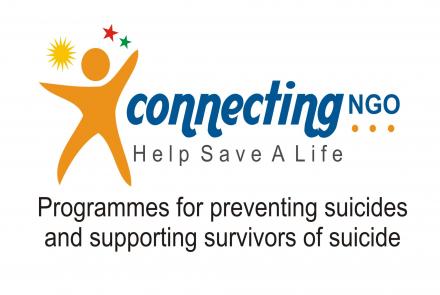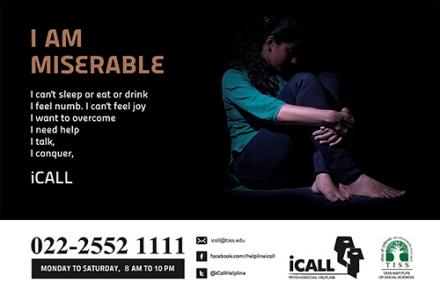
Workplace can create its own pressures on a person to develop long-term mental health issues. A look by clinical psychologist Smriti Sawhney at how certain issues ought to be tackled in one’s professional space.
“INDORE, India — Leaving his wife and two young children home on a recent Sunday, a 27-year-old salesman for Abbott Laboratories’ operations in India — in fact, one of the American health care company’s top performers there — rode his motorcycle to a remote railroad track and jumped in front of a train. In his pocket, a note in blue ink, handwritten in a mix of Hindi and English, said, “I’m going to commit suicide because I can’t meet my company’s sales targets and my company is pressuring me.” In, Driven to Suicide by an ‘Inhuman and Unnatural’ Pressure to Sell”- The New York Times
An Assocham study released in 2013 revealed that 42.5 per cent of employees suffer from depression. It said, “Because of demanding schedules, high-stress levels, and performance-linked perquisites in private sectors, nearly 42.5 per cent of employees in private sectors are afflicted with depression or general anxiety disorder, compared to government employees with lesser levels of psychological demand at work”.
“The investment does not call for massive budgets; rather, it calls for the willingness of each of us to educate ourselves and others about mental health and mental illness, and thus to confront the attitudes, fear, and misunderstanding that remain as barriers before us.” David Satcher, MD, PhD, Surgeon General, 1999
WORKPLACE AS THE TESTING GROUND
The workplace is almost like a second home to anyone who is employed by an organisation. I have personally had the opportunity to work full time with two organisations till now and even though it was a work from home scenario for me, yet I suffered from extreme work load andpoor work- life balance during my first full time employment tenure. Although, it’s very difficult to spell out the impact of work alone on personal identity, self-esteem and social recognition, I can say it for sure that the workplace can have a significant impact on an individual’s mental well-being.
Work place provides for various opportunities for psychological experience that can promote mental well-being. Some important ones are presence or absence of a time structure, opportunities to build a social network or be burdened by conflicts at work and an opportunity to establish one’s social identity at work place. A little stress arising from these or any other factors can actually push a person to look for solution to fight the stress or work on removing its sources. Fast approaching deadlines, long hours at work and travelling to work and the ever-increasing demands can leave anyone feeling worried, drained and overwhelmed. And when stress exceeds an individual’s ability to cope, it stops being helpful and starts causing damage to your mind and body—as well as to your job satisfaction. Too much of it can lead to chronic fatigue and burn out.
RED FLAG SIGNS FROM AN EMPLOYEE
Here are some red flag signs that can help an organisation identify an employee experiencing burn out or stress:
- Absenteeism, more than usual sick leave
- Physical ailments
- Poor work performance
- Accident proneness
- Tension and conflict with co-workers
- Harmful substance abuse
- Alcoholism
- Suicidal ideation
Many companies, both large and start-ups, are now realising that their employees’ productivity is connected to their health and well-being. Offering flexible work hours and opportunities for recreational time at work is proving to help boost productivity as well as create a positive space at work.
Another important aspect that can promote a feeling of belongingness, an essential component of workplace wellness, is the opportunity to be included in planning and carrying out activities and events in the workplace (e.g. the opportunity to decide and act in one’s chosen way and the potential to predict the consequences of one’s action). The degree to which the workplace environment encourages or inhibits the utilisation or development of skills is also essential for an employee to realise his/her full potential.
An individual has as many steps to take towards positive mental health as their work place. Sometimes it’s the stress in one’s personal life that one carries to one’s work place and soon work place too starts appearing stressful and hostile. Being aware of physical and emotional signs of stress and their triggers and seeking help for it is as important as for any physical ailment.
HOW TO REDUCE FEELING STRESSED AT ONE's WORK PLACE:
- Look for changes in your emotional expressions or physical health.
- Create your support team comprising family , friends or professionals like doctors or a psychologist , anyone whom you can connect with and seek help for your emotional or physical signs of distress.
- Increased Self Care – often under stress, the first thing that gets impacted is self care. Make sure you are eating well and resting enough to gather energy to move on rather than spend all and feel fatigued. Exercise every day to be healthy, happy and able to deal with life and its daily challenges
- Be Assertive: Are you assertive and are able to say no when you really feel you can take up anymore tasks or to personal favours? Learn to say 'no' to colleagues or friends who seem to take you for granted – if you're at an organisati on, speak to your seniors at work if colleagues are delegating too much work. Set boundaries in your life so you don't overextend yourself.
- Make changes in your personal or professional routines if you are feeling suffocated for time as this directly affects your motivation and productivity leading to you making more efforts at enhancing performance taking you a step closer to burn out.
I really like this quote by Dalai Lama as it helps me pause when I feel the heat to take a quick break and work on restoring my energy and motivation levels.
“In dealing with those who are undergoing great suffering, if you feel "burnout" setting in, if you feel demoralized and exhausted, it is best, for the sake of everyone, to withdraw and restore yourself. The point is to have a long-term perspective.” - Dalai Lama
Smriti Sawhney is a Clinical Psychologist and a Certified Telemental Health Expert with over 15 years of experience in the field of mental health. She works as a Lead Psychologist at Touchkin, creator of Wysa-a mental health chatbot helping people stay happy and stress free.
















